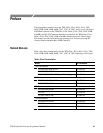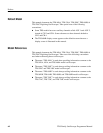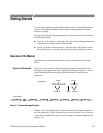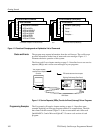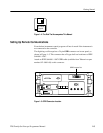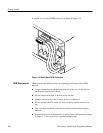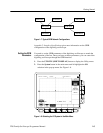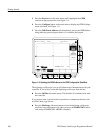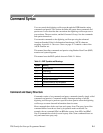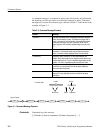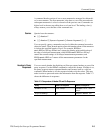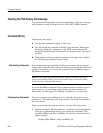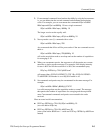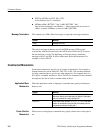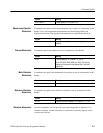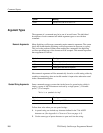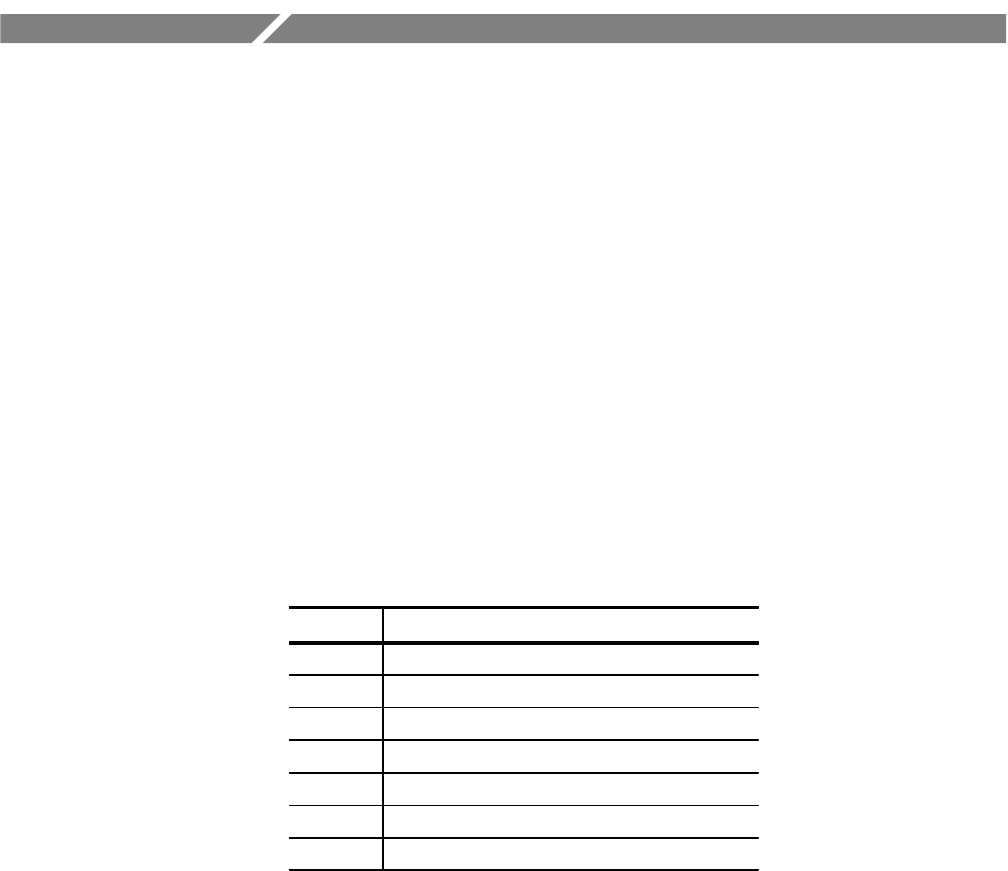
TDS Family Oscilloscope Programmer Manual
2–1
Command Syntax
You can control the digitizing oscilloscope through the GPIB interface using
commands and queries. This section describes the syntax these commands and
queries use. It also describes the conventions the digitizing oscilloscope uses to
process them. The next section, entitled Command Groups, lists the commands
and queries themselves.
You transmit commands to the digitizing oscilloscope using the enhanced
American Standard Code for Information Interchange (ASCII) character
encoding. Appendix A: Character Charts on page A–2 contains a chart of the
ASCII character set.
This manual describes commands and queries using Backus-Naur Form (BNF)
notation and syntax diagrams.
This manual uses the BNF symbols shown in Table 2–1 below:
Table 2–1: BNF Symbols and Meanings
Symbol Meaning
<ą> Defined element
::= Is defined as
| Exclusive OR
{ą} Group; one element is required
[ą] Optional; can be omitted
.ă.Ă. Previous element(s) may be repeated
(ą) Comment
Command and Query Structure
Commands consist of set commands and query commands (usually simply called
commands and queries). Commands modify instrument settings or tell the
digitizing oscilloscope to perform a specific action. Queries cause the digitizing
oscilloscope to return data and information about its status.
Most commands have both a set form and a query form. The query form of the
command differs from the set form by its question mark on the end. For
example, the set command ACQuire:MODe has a query form ACQuire:MODe?.
Not all commands have both a set and a query form. Some commands have set
only and some have query only.



